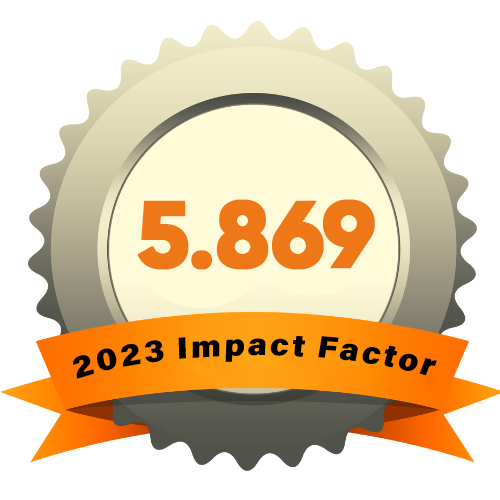IS IT A NEW THEORY OF LEXICOGRAPHY?
Аннотация
The question of whether we need a new theory of lexicography to guide the conception and development of lexicographical e-tools has been posed in the present shift from printed to electronic dictionaries. Alternatively, the theories produced during the printed works era may be applied. To address this, the paper first addresses the question of whether lexicographical theory is desirable, feasible, or even existent. It demonstrates that the fundamental reason for the different responses to this subject is the intense debate surrounding the definition of theory itself in lexicographical circles. In this regard, it briefly examines the Anglo-Saxon academic tradition, which holds that science is only concerned with natural phenomena and that all other phenomena fall under the purview of art and craft. It also demonstrates how strongly this tradition is opposed by traditions found throughout the world
Библиографические ссылки
Atkins, B.T. Sue and Michael Rundell. 2008. The Oxford Guide to Practical Lexicography. Oxford: Oxford University Press.
Béjoint, Henri. 2010. The Lexicography of English. Oxford: Oxford University Press.
Bergenholtz, Henning and Sven Tarp. 2003. Two Opposing Theories: On H.E. Wiegand's Recent Discovery of Lexicographic Functions. Hermes, Journal of Linguistics 31:171-196.
Bogaards, Paul. 2010. Lexicography: Science without Theory? De Schryver, Gilles-Maurice (Ed.). 2010. A Way with Words: Recent Advances in Lexical Theory and Analysis. A Festschrift for Patrick Hanks: 313-322. Kampala: Menha Publishers.
Bothma, Theo J.D. 2011. Filtering and Adapting Data and Information in the Online Environment in Response to User Needs. Fuertes-Olivera, Pedro A. and Henning Bergenholtz (Eds.). 2011.
Brooks, Terrence A. 1989. The Model of Science and Scientific Models in Librarianship. Library Trends 38(2): 237-249.
Buckland, Michael. 2012. What Kind of Science Can Information Science Be? Journal of the American Society for Information Science and Technology 63(1): 1-7.
Bergenholtz (Eds.). 2011a. e-Lexicography: The Internet, Digital Initiatives and Lexicography. London/New York: Continuum.
Fuertes-Olivera, Pedro A. and Henning Bergenholtz. 2011b. Introduction: The Construction of Internet Dictionaries.
Fuertes-Olivera, Pedro A. and Henning Bergenholtz (Eds.). 2011. e-Lexicography: The Internet, Digital Initiatives and Lexicography: 1-16. London/New York: Continuum.
Gouws, Rufus H. 2011. Learning, Unlearning and Innovation in the Planning of Electronic Dictionaries. Fuertes-Olivera, Pedro A. and Henning
Bergenholtz (Eds.). 2011. e-Lexicography: The Internet, Digital Initiatives and Lexicography: 17-29. London/New York: Continuum.
Mamatova, N. K., Israilova, N. K., Mamatov, R. R., & Sodikov, D. K. (2021). German Education system and its pedagogical significance in the world Education system. International journal of innovations in engineering research and technology, 8(04), 99-102.
Khudaberdievna, I. N. (2023). TRANSLATION UNITS IN TEXT TRANSLATION. JOURNAL OF LANGUAGE AND LINGUISTICS, 6(4), 326-331.
Xudaberdiyevna, I. N., Kozimbekovna, M. N., Rustamovich, M. R., & Sobirovich, P. M. (2021). DAS GRAMMATISCHE GESCHLECHT UND STRUKTURELL–SEMANTISCHE KLASSIFIKATION DER SUBSTANTIVE. apni. ru Редакционная коллегия, 35.
Исраилова, Н. (2023). ГРАММАТИЧЕСКИЕ И ФОНЕТИЧЕСКИЕ АСПЕКТЫ KIEZDEUTSCH. Евразийский журнал технологий и инноваций, 1(6 Part 2), 114-117.
Xudaberdiyevna, I. N. (2023). STRUCTURAL AND SEMANTIC FEATURES OF GERMAN YOUTH SLANG. Ethiopian International Journal of Multidisciplinary Research, 10(10), 285-288.
Israilova, N. (2023). KIEZDEUTSCH SOTSIOLEKTINING ZAMONAVIY NEMIS TILIDA PAYDO BO'LISHI. Центральноазиатский журнал образования и инноваций, 2(6 Part 4), 5-8.
Burkhanovich, A. O. (2023). COMMON ZOONYMS AND THEIR LEXICAL-SEMANTIC CHARACTERISTICS (EXAMPLE OF UZBEKI AND GERMAN LANGUAGES). International Multidisciplinary Journal for Research & Development, 10(10).
Azamov, O. B., Yusupov, O. R., Mamatov, R. R., & Mamatova, N. K. Pedagogical technologies in the process of education. International Journal of Innovations in Engineering Research and Technology, 8(04), 67-69.
Burxonovich, A. O. (2024). FRAZEODIDAKTIKA. IQRO INDEXING, 8(2 (2)), 38-40.
Burkhanovich, A. O. (2023). CRITERION OF IDEOMATIVITY IN PHRASEOLOGICAL UNITS. JOURNAL OF LANGUAGE AND LINGUISTICS, 6(4), 391-393.
Burxanovich, A. O. (2022). THE PLACE OF PHRASEOLOGICAL SYSTEM IN EUROPEAN LINGUISTICS AND EARLY PHRASEOLOGICAL STUDIES. Berlin Studies Transnational Journal of Science and Humanities, 2(1.6 Philological sciences).
Азамов, О. Б. (2022). THE PLACE OF PHRASEOLOGICAL SYSTEM IN EUROPEAN LINGUISTICS AND EARLY PHRASEOLOGICAL STUDIES. МЕЖДУНАРОДНЫЙ ЖУРНАЛ ЯЗЫКА, ОБРАЗОВАНИЯ, ПЕРЕВОДА, 3(1).
Омаджон, А. Б. (2022). ЗООФРАЗЕМАЛАРНИ ЎРГАНИШ ТАМОЙИЛЛАРИ ВА ТАҲЛИЛ УСУЛЛАРИ. IJODKOR O'QITUVCHI, 2(24), 659-664.
Matqosimova, M. E. Q. (2022). SMS LARDA ELLIPTIK STRUKTURALAR. Central Asian Research Journal for Interdisciplinary Studies (CARJIS), 2(12), 181-186.












